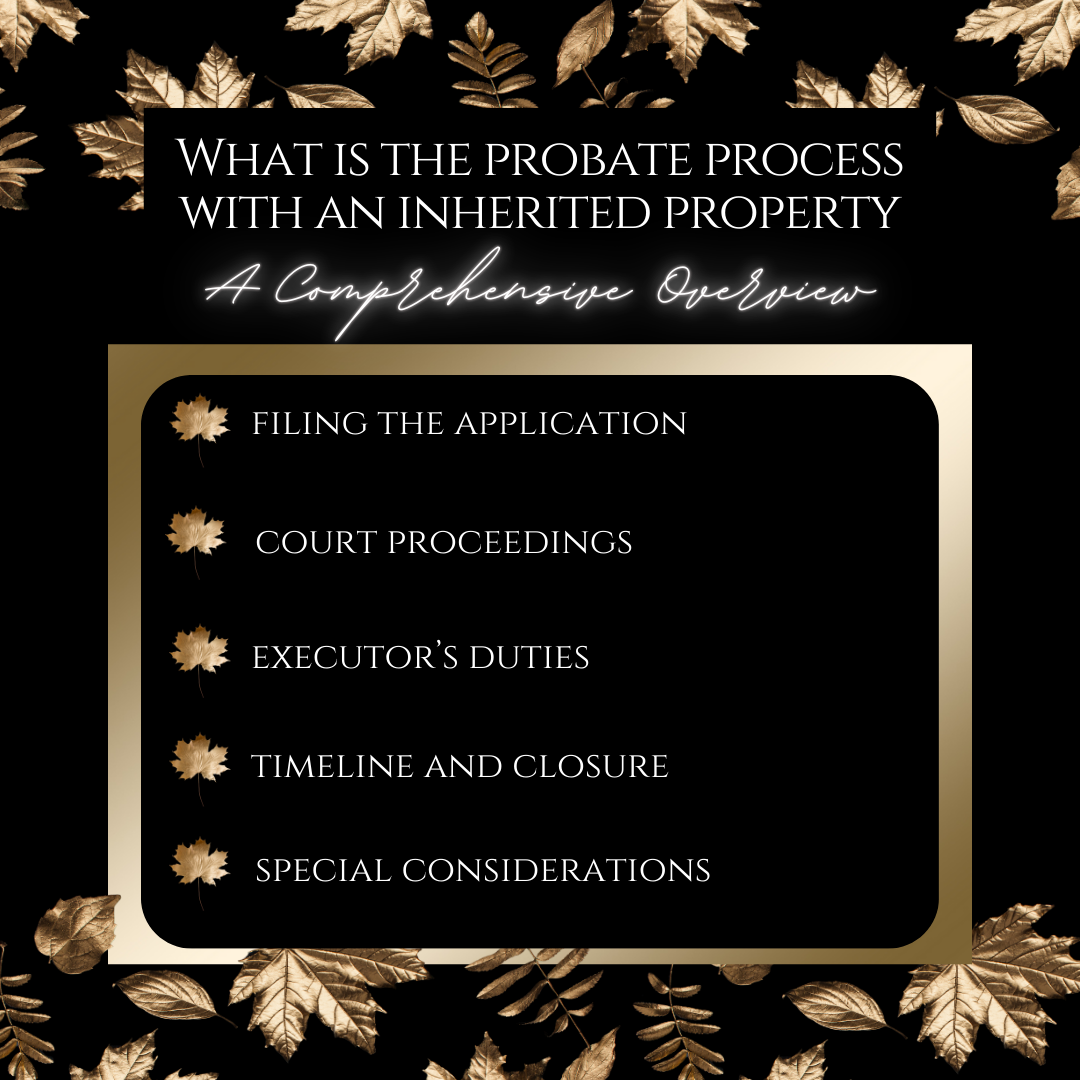Navigating the Probate Process with an Inherited Property in Texas

Dealing with the loss of a loved one is undeniably challenging, and it becomes even more complex when you inherit a property. In Texas, the probate process is an essential legal procedure that transfers ownership of property from the deceased person to their beneficiaries. Understanding the probate process is crucial for individuals like Stacy Burgin, a real estate agent at Terra Point Realty, as it enables them to guide their clients through this intricate journey. In this blog post, we will delve into the probate process with an inherited property in Texas, shedding light on the steps involved and the potential challenges one might encounter.
What is Probate?
Probate is the legal process through which the court validates a deceased person’s will, settles their debts, and distributes their assets to the rightful beneficiaries. When it comes to inherited property, probate ensures a smooth transfer of ownership from the decedent to their heirs. Stacy Burgin, an experienced real estate agent, understands the importance of probate in safeguarding her clients’ interests.

Initiating the Probate Process
To initiate the probate process in Texas. The executor named in the will must file a petition with the appropriate county court. The court will then schedule a hearing to validate the will and appoint an executor if necessary. Stacy Burgin, with her extensive knowledge of the legal requirements. Can assist her clients in preparing the necessary paperwork and guide them through the entire process.
Inventory and Appraisal

Once the court appoints an executor, the next step involves taking inventory of the deceased person’s assets. Including, the inherited property. Additionally, an appraiser conducts an appraisal to determine the fair market value of the property. Therefore, Stacy Burgin’s expertise as a real estate agent comes into play here. For example, she can provide valuable insights into property valuation and help her clients navigate the appraisal process.
Settling Debts and Taxes
Inherited property may be subject to outstanding debts and taxes. During the probate process, these debts and taxes must be settled before the property can be transferred to the beneficiaries. Therefore, Stacy Burgin, in collaboration with legal professionals. Can assist her clients in addressing any outstanding financial obligations associated with the inherited property.
Transfer of Ownership
Once all debts and taxes are settled. The court will issue an order allowing the transfer of ownership of the inherited property to the designated beneficiaries. Stacy Burgin, with her expertise in real estate transactions. Can guide her clients through the final stages of the probate process. Therefore, ensuring a seamless transfer of ownership.
Probate Process for an Inherited Property in Texas
The probate process for an inherited property in Texas involves several key steps:
Filing the Application
The process begins with filing an Application for Probate of Will and for Issuance of Letters Testamentary with the probate court clerk in the county where the deceased person lived. This must be done within four years of the person’s death.
Court Proceedings
After filing, the court clerk posts a public notice about the petition for about two weeks. This allows potential heirs to contest the will if necessary. If there are no challenges, the court will hold a hearing to verify the will’s validity and grant legal authority to the executor.
Executor's Duties
Once appointed, the executor has several responsibilities:
Inventory Assets:
Within 90 days, the executor must compile an inventory of the deceased’s assets, including the inherited property, and determine their value.
Notify Beneficiaries:
The executor must inform beneficiaries named in the will about their entitlements.
Handle Debts and Taxes:
The executor must notify creditors, settle debts, and pay any outstanding taxes using the estate’s funds.
Distribute Assets:
After settling debts and taxes, the executor distributes the remaining assets, including the inherited property, to the beneficiaries as specified in the will.

Timeline and Closure
The entire probate process in Texas typically takes between six months to a year, though it can vary based on the estate’s complexity. Once all tasks are completed, the executor attends a final hearing where the court officially closes the estate.
Special Considerations
If there’s no will, the property passes to heirs according to Texas intestacy laws.
Texas offers a simplified probate option called “muniment of title” for certain estates, which can be completed in as little as 30 days.
If the inherited property was held in a living trust, it may bypass the probate process entirely.
Remember, while this outlines the general process, each situation can have unique aspects. It’s often advisable to consult with a probate attorney to navigate the specific requirements of your inherited property in Texas.
What is the Probate Process with an Inherited Property in Texas | Conclusion
In conclusion, navigating the probate process with an inherited property in Texas can be a complex and time-consuming endeavor. However, with the assistance of experienced professionals like Stacy Burgin from Terra Point Realty, individuals can have peace of mind knowing they have a knowledgeable ally by their side. Whether it’s understanding the legal requirements, property valuation, or settling outstanding debts, Stacy Burgin’s expertise makes her an invaluable resource for anyone going through the probate process.

Contact Information
To schedule a coffee date or learn more about what is the probate process with an inherited property in Texas, contact Terra Point Realty at 713-766-1697. Their friendly and knowledgeable team is ready to assist you with understanding what is the probate process with an inherited property in Texas. Don’t miss out on the opportunity to live in your dream house – schedule a coffee date today and start your journey towards understanding what is the probate process with an inherited property in Texas.
